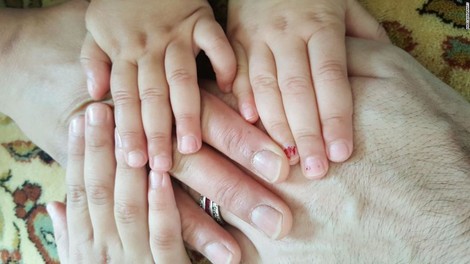Your podcast discovery platform
Curious minds select the most fascinating podcasts from around the world. Discover hand-piqd audio recommendations on your favorite topics.

piqer for: Global finds Health and Sanity Doing Good
Bangalore-based Rashmi Vasudeva's journalism has appeared in many Indian and international publications over the past decade. A features writer with over nine years of experience heading a health and fitness supplement in a mainstream Indian newspaper, her niche areas include health, wellness, fitness, food, nutrition and Indian classical Arts.
Her articles have appeared in various publications including Mint-Wall Street Journal, The Hindu, Deccan Herald (mainstream South Indian newspaper), Smart Life (Health magazine from the Malayala Manorama Group of publications), YourStory (India's media technology platform for entrepreneurs), Avantika (a noir arts and theatre magazine), ZDF (a German public broadcasting company) and others.
In 2006, she was awarded the British Print-Chevening scholarship to pursue a short-term course in new-age journalism at the University of Westminster, U.K. With a double Masters in Globalisation and Media Studies from Aarhus Universitet (Denmark), University of Amsterdam and Swansea University in Wales, U.K., she has also dabbled in academics, travel writing and socio-cultural studies. Mother to a frisky toddler, she hums 'wheels on the bus' while working and keeps a beady eye on the aforementioned toddler's antics.
Miles For Smiles: Uniting Separated Families Gets Off To A Flying Start
Social media can be annoying, intrusive and depressing. And yet, sometimes, it does enough good for us to be able to tolerate all its ills.
When a University of Michigan professor tweeted about how she managed to unite a three-year-old and his dad who had been separated at the US-Mexican border with their extended family because of frequent flyer miles that her husband had collected, she perhaps expected a few pats on her back and a few more inquiring about how she did it.
Instead, Beth Wilensky's tweet got more than 139,000 likes and 31,000 retweets with people bombarding her with queries about how they could do it as well.
After her tweet went viral, more than 7.3 million frequent flyer miles have been donated to an NGO which has been working to reunite families.
Though the concept of donating frequent flyer miles is not new, the heartening fact is many major US Airlines have asked the federal government to refrain from using their planes to transport migrant children separated from their parents. Miles4Migrants and another grassroots organisation called Michigan Support Circle, which together facilitated the professor's donation of her miles, are now working along with the airlines to put the new miles' donation to good use.
This is because barely 48 hours after the professor's tweet, Miles4Migrants had received 4.5 million miles, and by the end of the week, the figure had almost reached 8 million. This means the organisation could actually fly over 300 people (domestic flights averaging around 20,000 miles per ticket) to reunite with their families. This help is crucial, since in most cases, the separated families do not have the funds to travel.
In this context, there is another related story that is equally uplifting; about how groups of mothers and ‘angry grandmas’ stepped in with their food supplies and lemonade stands to help the separated families. Read it here.
